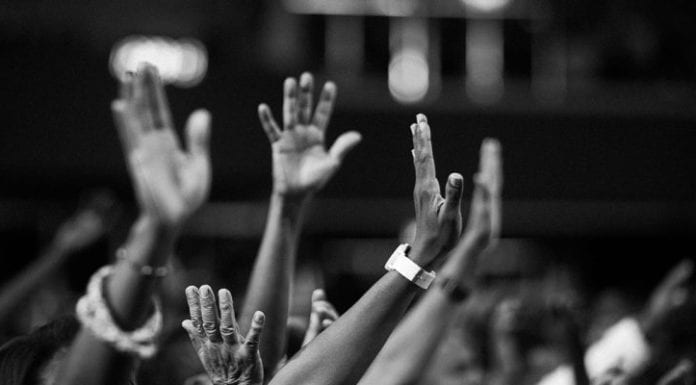For churches, businesses and other public institutions, the COVID-19 pandemic forced creative innovations by those who have survived the worst of the health crisis.
Others became mired in the sudden halt of normal activity and succumbed to the burden of sustaining financial equilibrium in the absence of in-person interaction, according to the Rev. Dr. Byron C. Moore, senior pastor of St. Andrew A.M.E. Church.
“The average church has a congregation of 75,” said Moore. “And the demographic of that population is mostly seniors. The pandemic put a cap on what the church could do and be. In the end, it was just too much to overcome.”

Moore said although there will be some churches that have closed for good, there have been a number of valuable lessons “we can take out of this devastating experience.”
Despite the rise in family deaths and loss, both from COVID-19 and other causes, it has become evident how fragile an institution the “black church” actually is.
“I have done more funerals over the past year,” said Moore. “There was one funeral in particular that I had to perform. It was of a mother who died first of COVID-19. Then, the daughter died.
“There was a man sitting there on the front pew, a husband and a father, mourning the passing of them both. That was a watershed moment for me. Mental health is going to be crucial behind all of the suffering and loss.”
The loss of a loved one, the loss of a church, the loss of a job, the loss of what life once was — it is all loss, and grieving is a very serious concern and reality for many people, Moore said.
Moore said one positive thing he has seen the pandemic do is break down the walls people have put up because they are reluctant to see a therapist or seek professional mental health assistance.
“We have three school-aged children,” said Moore. “I saw first-hand the effects of our children having normal childhood socialization interrupted in such a drastic way. Our oldest daughter is 16. Her best friend’s father died from COVID-19. It was distressing for her. She told us, ‘I can’t even be there for her.’”
According to the Tennyson Center for Children, mental health is the next health crisis as the nation emerges from the pandemic, according to a report released in December 2020.
The Centers for Disease Control (CDC) released a study last August showing that more than 40 percent of adults in the United States reported struggling with mental health challenges or substance abuse because of widespread death, job loss and isolation from the mandatory shutdown.
The study also showed that almost 11 percent of respondents had seriously considered suicide in the 30 days prior to completing the survey, and the number was significantly higher among 18–24-year-olds, over 25 percent.
The study also found that a prevalence of depression symptoms in adults had tripled since the pandemic.
Moore said, though, there is good news. People are opening up to the notion of mental health care.
“There has been a change in how people view mental health professionals,” said Moore. “I have been direct and clear in my message about mental health. It’s okay to have a therapist. It’s okay to seek counseling and it’s okay to take medication. God can heal instantly, but it is important to see the hand of God in these other things as well.”
Moore, a former chaplain, said he understands the importance of helping people see divine intervention in other methods used by physicians as well as mental health professionals.
“Look, it has been a season of uncharted waters,” said Moore. “This was a once-in-a-century event, and nobody has the playbook. The pandemic has created a need for churches to share and help each other in the evolving virtual church.
“I have been in communion with other pastors. We exchange ideas. ‘What is working for you?’ ‘What is new going to look like?’ How do we navigate as we move forward?’”



